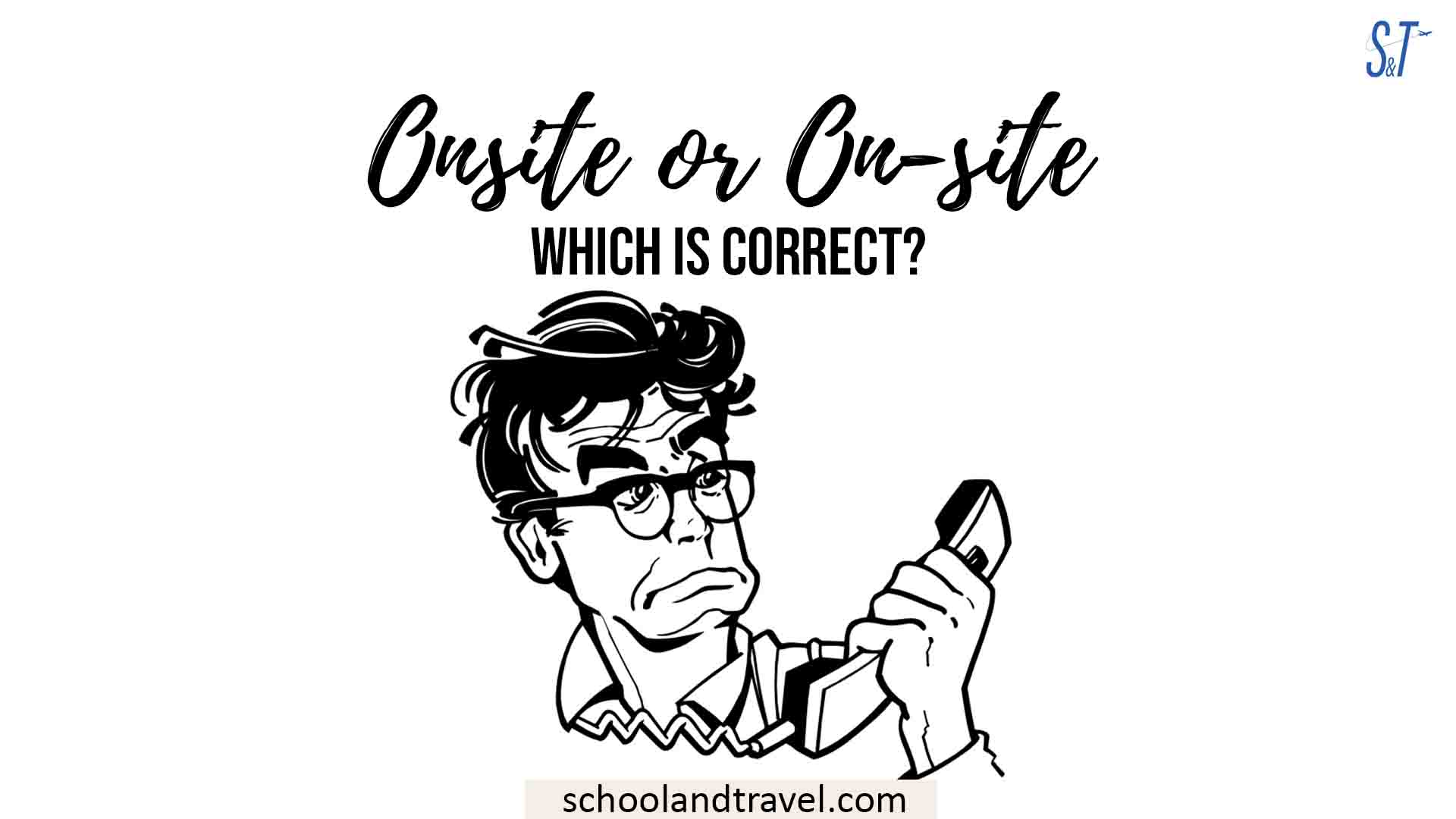There has been a lot of discrepancy on whether to use “Onsite or On-site”. A lot of people say that it’s best to write it without the hyphen while some people say that the hyphen helps to logically add more meaning to it. In this article, I will explain the two words and help you understand them both.
One thing I want you to understand about the English language is not anybody is a master of all; there are times that you have to check the dictionary to confirm the exact meaning or pattern of use. So don’t feel embarrassed if the word seems awkward to you. Alright, let’s ride on to “Onsite or On-site”.
Onsite or On-site
On-site definition
On-site means “being seen in a particular area at a point in time”. According to Merriam Webster and Oxford dictionaries, on-site is the best way to represent it instead of writing it together as a word. Here are some examples:
Examples:
- He was shot by the sniper on-site.
- When I got to the compound, the generator was kept on-site in case of power failure.
- Even if you ask him to say on-site, he will surely disobey you; that’s what I think.
- The principal will be available on-site.
Read this: Greatful vs. Grateful – See the only Difference
Onsite or On-site
Onsite definition
It has the same definition as On-site. The word is also correct if you use it, but logically most people will prefer “On-site”.
Examples:
- They provide onsite and offline lessons due to the differences in work timing.
- Although the training is online, you can still register onsite.
- All results belonging to students are backed up onsite.
- Although the door was left open, Donald and Eric were asked to stay onsite.
Read this: Busses or Buses (Which is correct?)
Summary:
In comparing “Onsite or On-site“, the two words are correct, but most people use “on-site” because it seems logically correct.
Awesome one, I hope this article answered your question.






